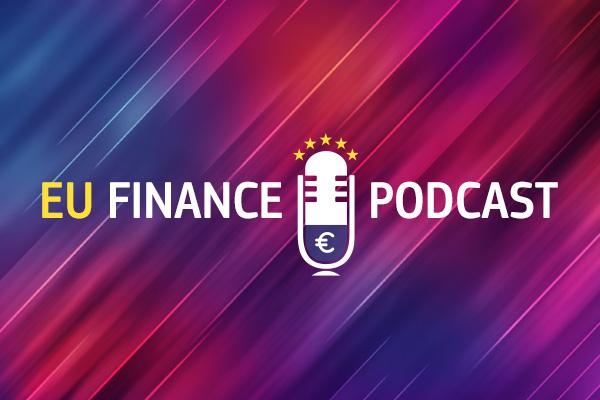What is digital finance?
Digital finance is the term used to describe the impact of new technologies on the financial services industry. It includes a variety of products, applications, processes and business models that have transformed the traditional way of providing banking and financial services.
While technological innovation in finance is not new, investment in new technologies has substantially increased in recent years and the pace of innovation is exponential. We now interact with our bank using mobile technology. We make payments, transfer money and make investments using a variety of new tools that were not there few years ago. Artificial intelligence, social networks, machine learning, mobile applications, distributed ledger technology, cloud computing and big data analytics have given rise to new services and business models by established financial institutions and new market entrants.
All these technologies can benefit both consumers and companies by enabling greater access to financial services, offering wider choice and increasing efficiency of operations. They can also contribute to bringing down national barriers and spurring competition in areas such as
- online banking, online payment and transfer services
- peer-to-peer lending
- personal investment advice and services
The financial services industry has been influenced by innovative technology, which can benefit both consumers and companies by giving a greater access to financial services, offering wider choice and increasing efficiency of operations.
Numerous opportunities involve also risks and challenges, which require monitoring and regulation. Therefore, the Commission has put further many initiatives to embrace the innovations, preserve market stability and integrity, and protect financial investors as well as consumers.
Digital finance explained

Episode 2 - The one about Digital Finance

Episode 12 - The one about the data hub - Digital finance platform
Digital finance topics

As a digital form of central bank money, the digital euro would offer consumers and businesses more choice, reinforce the EU’s digital transition, and strengthen the international role of the euro.

"Open finance” proposal establishing a framework for responsible access to individual and business customer data across a wide range of financial services.

The framework on digital operational resilience focuses on managing the risks associated with the financial sector relying more on software and digital processes.

A comprehensive framework for crypto-assets and related services to ensure that the Union financial services are fit for the digital age.
Digital Finance Platform and the Data Hub
Following up on the digital finance strategy, the Commission established a platform aimed at supporting innovation in finance and building a true single market for digital financial services. The Data Hub will make available to participating firms specific sets of non-public, non-personal data, with a view to enable them to test innovative products and train AI/ML models. The initiative is part of the European strategy for data from 2020 through which the EU commits to boosting the development of trustworthy data-sharing systems.

Policy making timeline
- 18 June 2024Consultation - AI in the financial sector
- 18 June 2024Workshops - AI in the financial sector
- 24 October 2022Report - Open finance
The report on open finance is a key outcome of the Expert Group on the European Financial Data Space. The report describes elements of an open finance ecosystem as seen from the perspective of the Expert Group.
- 10 May 2022Consultation - Open finance
Targeted consultation on the framework and data sharing in the financial sector. It will inform the Commission on the application and impact of PSD2 and on the views on open finance.
End date: 5 July 2022 - 5 April 2022Consultation - Digital euro
Targeted consultation on a digital euro, complementing the ECB’s public consultation.
End date: 16 June 2022 - 2 February 2021Technical advice - Digital finance and related issues
Request to EBA, EIOPA and ESMA for technical advice on digital finance and related issues. The Commission requested the technical advice of the ESAs based on its digital finance strategy, which sets out its work for the coming four years.
- 24 September 2020Legislative proposal - Digital finance package
- 1 July 2021Events - Digital finance outreach
The digital finance outreach is a series of events on fintech and digital innovation in the financial sector.
- 19 December 2019Consultation - Crypto-assets & digital operational resilience
The Commission launched two consultations
- 13 December 2019Final report - Expert Group on Regulatory Obstacles to Financial Innovation
Final report of the Expert Group on Regulatory Obstacles to Financial Innovation: 30 recommendations on regulation, innovation and finance.
Expert Group on Regulatory Obstacles to Financial Innovation publishes recommendations on how to create an accommodative framework for FinTech in the EU. - 20 June 2018Meeting - EU FinTech Lab
First meeting of the EU FinTech Lab. The EU FinTech Lab intends to raise the level of regulatory and supervisory capacity and to share knowledge about new technologies.
- 8 March 2018Legislative proposal - FinTech
FinTech action plan: For a more competitive and innovative European financial sector.
Communication from the Commission setting out steps to encourage a wider and more balanced uptake of technological innovation in the financial sector
- 8 March 2018Call for applications - Regulatory obstacles to financial innovation expert group
The expert group will assist the Commission by providing expertise on the regulatory obstacles preventing uptake of innovative FinTech solutions
- 23 March 2017Consultation - FinTech
Public consultation on FinTech: a more competitive and innovative European financial sector.
End date: 15 June 2017

